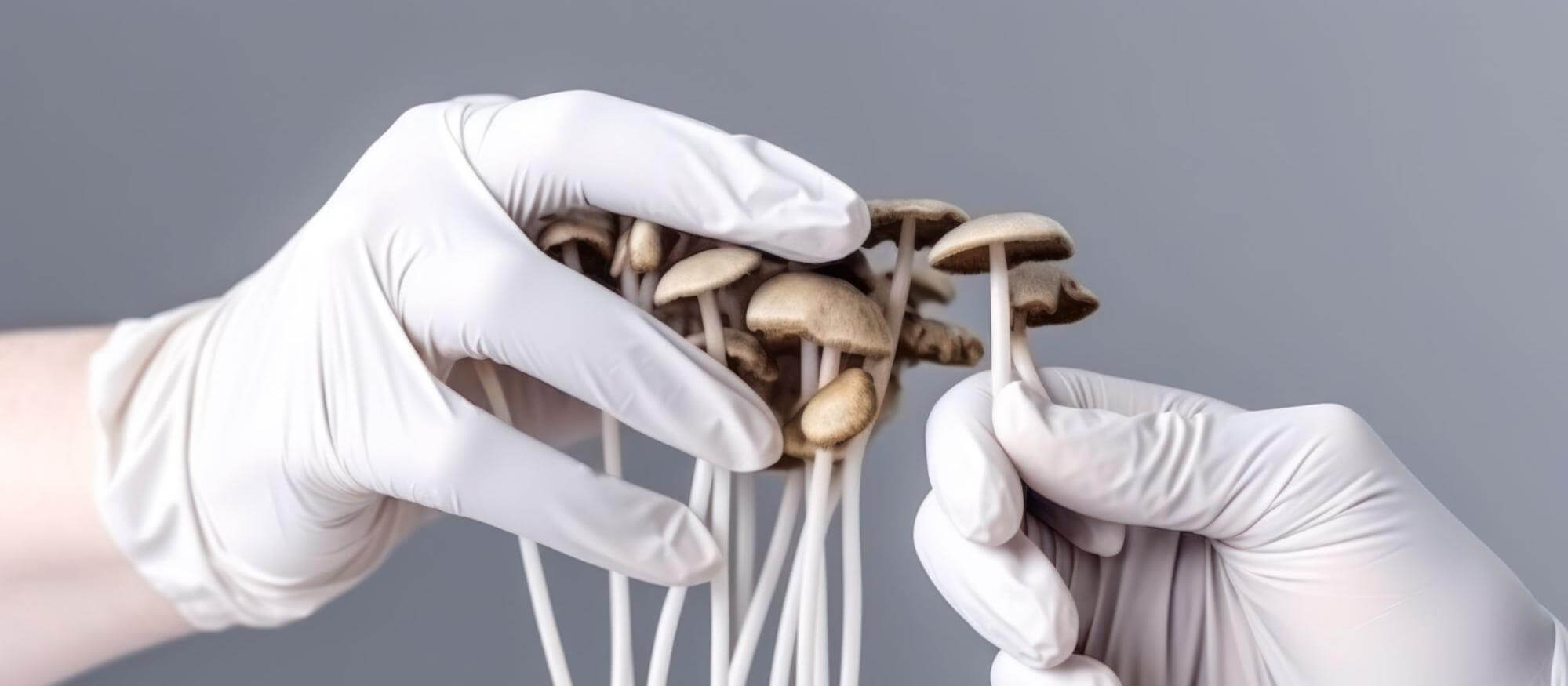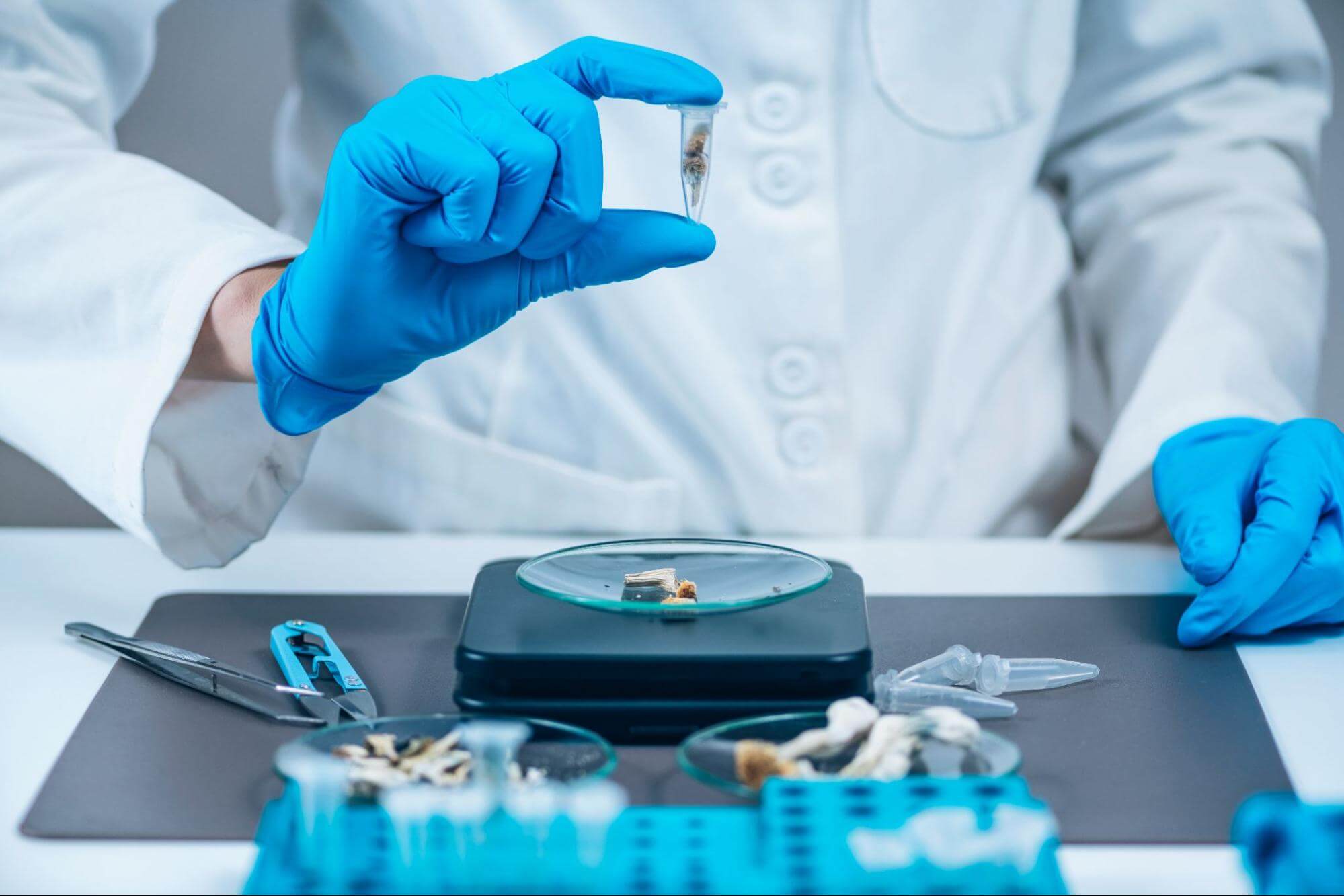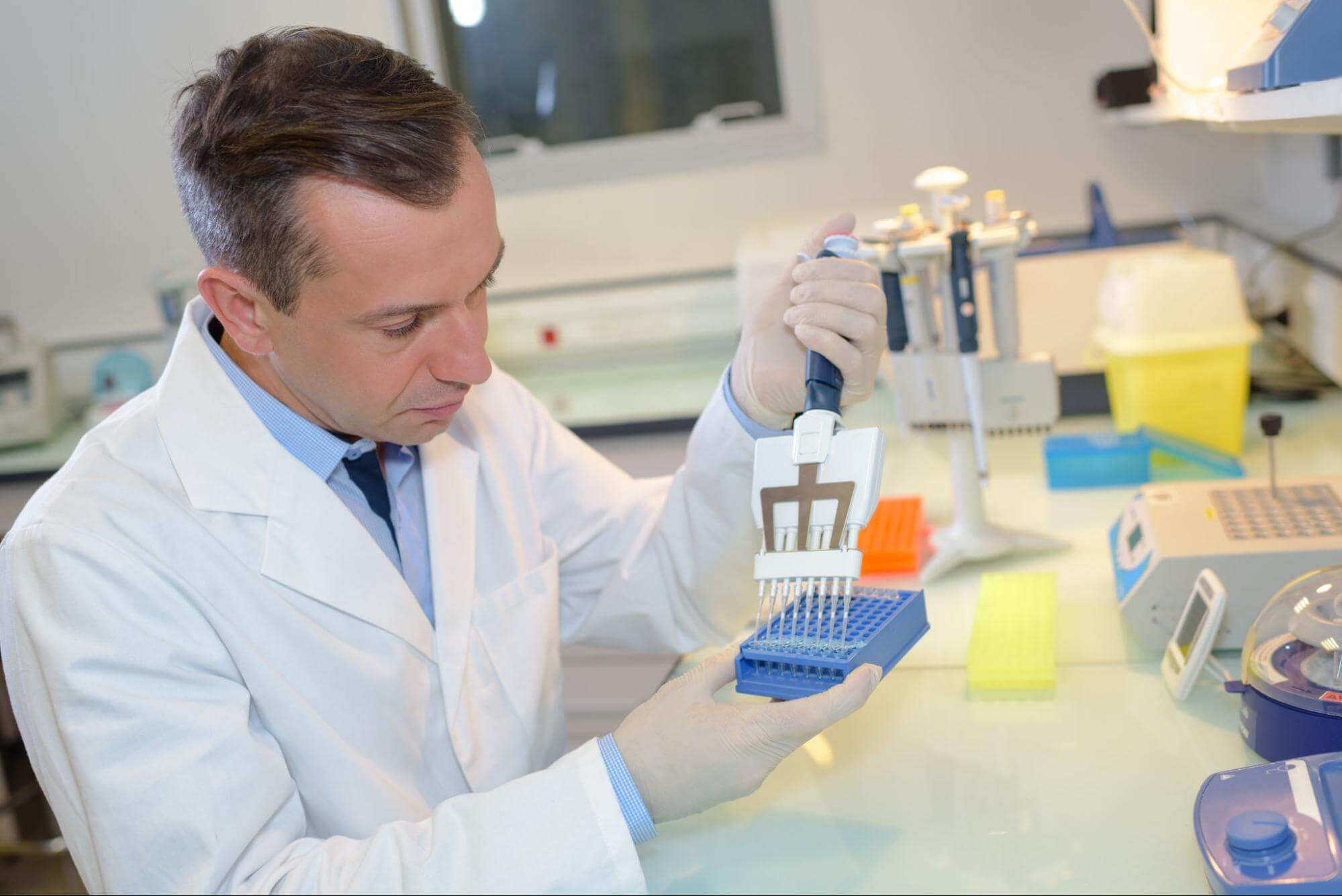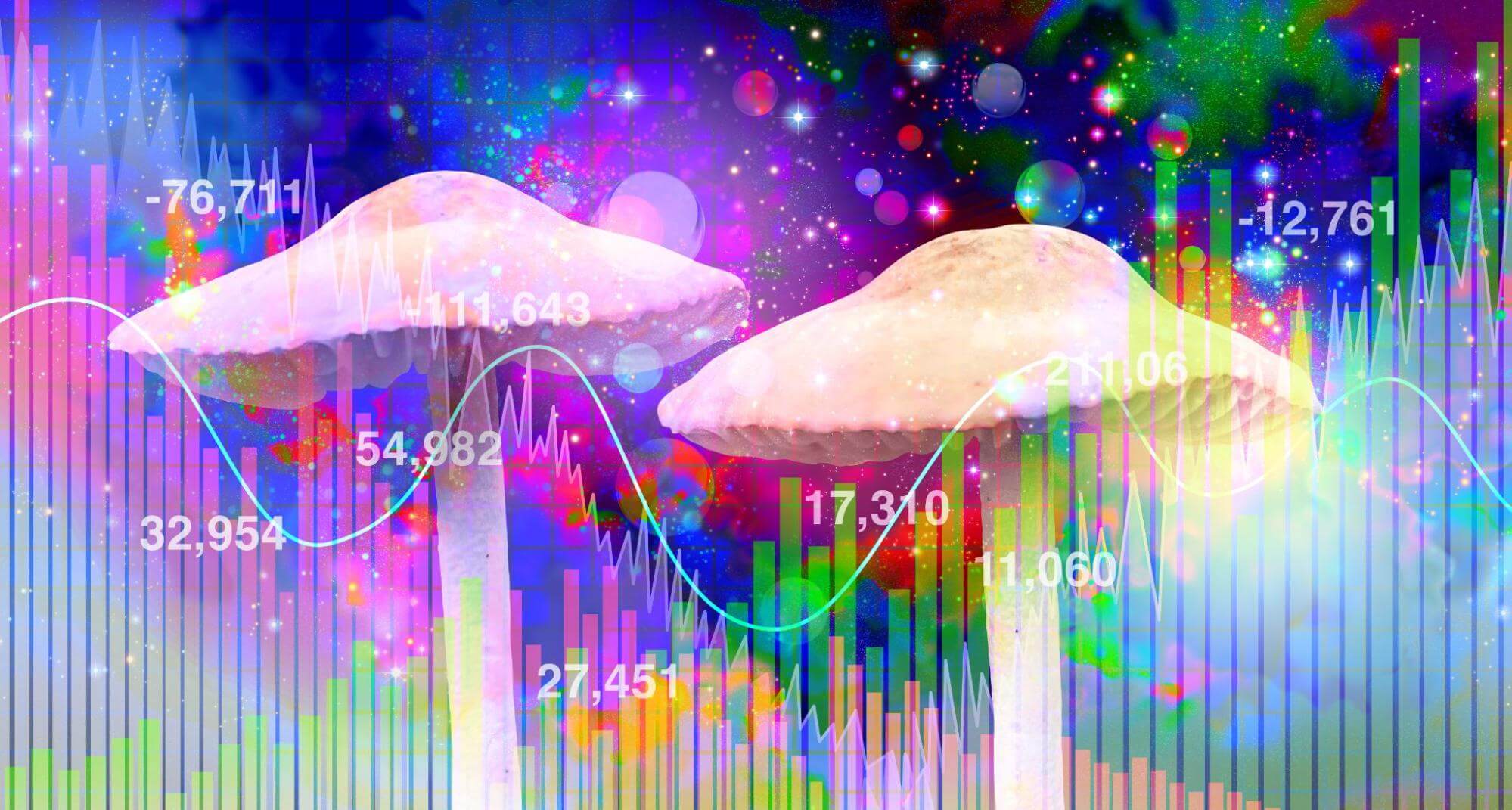Ever wondered about how long do shrooms stay in your system? Whether you’ve tried them or are just curious, it’s important to know how long they stay in your system.
In this article, we’ll take a friendly, down-to-earth look at the basics of shrooms and how they metabolize. We’ll discuss how long shrooms stay in your system and what factors affect their duration. In case you or someone you know is dealing with substance abuse including magic mushrooms, it’s important to seek professional help. Understanding how long shrooms stay in your system can be useful information, but it’s also crucial to be aware of the risks and potential consequences of drug use.
Understanding Magic Mushrooms And How They Metabolize

Magic mushrooms (or “shrooms,” as they’re often called) contain a natural compound called psilocybin. When you consume shrooms, the psilocybin ingested plays a key role, as it’s quickly converted in the body to psilocin, which brings on the hallucinogenic effects. The speed at which your body metabolizes psilocybin can vary, particularly if kidney function is slow, which can affect how long traces stay in the system. While most of the substance is metabolized and excreted, various tests, like urine tests, can still detect drug traces depending on individual factors.
Factors Affecting Detection In The Body
There’s no one-size-fits-all answer to how long shrooms stay in your system. A few things can make a difference here:
- Body Composition: People with higher body fat might metabolize substances at a different rate.
- Metabolism: If you have a fast metabolism, your body can process shrooms quicker.
- Dosage and Frequency: A larger dose or repeated use will often take longer to clear from your system.
- Mushroom Species: Different types of shrooms have varying amounts of psilocybin.
- Age and Health: Your kidney and liver health play a big role in how fast substances like shrooms clear out.
Magic mushrooms can leave lingering effects on mental health, which may be concerning, especially for those with a history of mental health challenges.
At CenterPointe Recovery, we offer a range of support options for individuals experiencing adverse effects from substance abuse, including hallucinogenic compounds. Our approach to care includes substance abuse treatment that is compassionate and individualized, supporting each person through therapy, education, and a strong support system.
Concerned about the psychological effects of shrooms? Let us help!
How Long Do Shrooms Stay Detectable?

Detection times are a bit of a mixed bag, depending on the test. Some tests catch psilocybin within hours, while others (like hair follicle tests) might show signs of it weeks later.
Drug Testing Methods for Magic Mushrooms

When it comes to how long do shrooms stay in your system, here’s the scoop on a few types of tests and how long they can detect shrooms:
- Urine Drug Tests
- Detection Window: 24-48 hours
- Standard urine tests don’t usually screen for psilocybin, but if they do, it’s generally detectable for a day or two.
- Blood Tests
- Detection Window: A few hours
- Psilocybin leaves the bloodstream pretty quickly—often undetectable within hours.
- Saliva Tests
- Detection Window: 1-2 hours after ingestion
- Like blood, psilocybin isn’t detectable in saliva for long—just a couple of hours.
- Hair Follicle Tests
- Detection Window: Up to 90 days
- Hair tests are uncommon for shrooms but can detect use up to three months later.
Most routine drug tests don’t check for psilocybin, so chances of detection are slim unless it’s a very specific test.

Knowing how long shrooms stay in your system is helpful for several reasons. Maybe it’s about having a clear head. Maybe it’s about making some thoughtful choices. It’s also helpful for individuals who may have concerns about their mental health or a loved ones’ and want to keep a check on how long certain effects could linger.
Understanding Potential Psychological Dependence
Although psilocybin is generally considered to have a low potential for addiction compared to other substances, individuals with underlying psychological vulnerabilities may develop a problematic relationship with these magic mushrooms. Some people might experience psychological dependence, particularly those seeking to:
- Escape emotional challenges
- Recreate intense psychedelic experiences
- Self-medicate underlying mental health conditions
Risks For Vulnerable Individuals
For individuals with pre-existing mental health conditions, consuming psilocybin mushrooms can potentially lead to:
- Increased anxiety
- Exacerbation of existing psychological disorders
- Potential for psychological abuse or compulsive use
- Disruption of normal cognitive functioning
Psychological Dependence Indicators
- Compulsive desire to repeatedly use mushrooms
- Using mushrooms as a primary coping mechanism
- Experiencing withdrawal-like emotional symptoms when not using
- Prioritizing mushroom experiences over personal responsibilities
It’s crucial to understand that while not physically addictive in the traditional sense, psychological dependence can develop. Individuals with a history of substance abuse or mental health disorders should be particularly cautious and consult mental health professionals before considering any form of psychedelic use.
Common Side Effects Of Shrooms
Shrooms affect everyone a little differently, and the effects usually last a few hours, sometimes stretching into the next day. Here’s a quick look at common side effects:
- Hallucinations: The mind can take you on a very visual or auditory ride.
- Mood Swings: Emotions can swing from happy to a bit anxious.
- Physical Discomfort: Nausea and dizziness are pretty common.
- “Bad Trips”: Some report tough experiences that feel like a “bad trip.”
- Lingering Effects: Sometimes, there’s a gentle afterglow; other times, subtle effects can linger for a few days.
Being mindful of these possibilities can make the experience more manageable.
Finding Support At CenterPointe Recovery

If you’re dealing with lingering effects or unexpected challenges from consuming shrooms or any other substances, our team at CenterPointe Recovery is here for you. Magic mushrooms, like other drugs, can impact your mental health, and understanding how long do shrooms stay in your system and what are their side effects isn’t always straightforward.
Our outpatient alcohol and substance abuse program provides structured, supportive care that doesn’t require an inpatient stay. We recognize that shroom use can impact mental health in different ways for different people, and our programs offer the support you need, from therapeutic counseling to drug testing methods that address various drug interactions and lingering effects.
Need help navigating the effects of shrooms or the overconsumption of drugs and alcohol ? Reach out to us!
FAQs
Are there healthcare professionals who specialize in drug testing for psilocybin mushrooms?
Yes, certain healthcare providers and specialized facilities offer drug testing for psilocybin mushrooms, though it’s not typically part of standard screenings. Many outpatient treatment programs and recovery centers also provide support for those managing psilocybin’s effects, with resources, counseling, and guidance tailored to their needs.
How long do mushrooms stay in your system?
The presence of psilocybin mushrooms can vary depending on individual factors such as body mass, kidney function, and body fat percentage. Detection windows generally range from a few hours to a few days based on these factors.
Can a hair follicle test detect magic mushrooms?
Yes, a hair follicle test can sometimes detect magic mushrooms if they’ve been consumed recently. However, this method is not commonly used due to the specialized tests required and the lack of routine testing for hallucinogenic mushrooms.
Do mental health conditions affect how the body metabolizes shrooms?
Mental health conditions don’t directly affect how the body metabolizes shrooms, but such conditions can influence the psychedelic effects, potentially heightening visual and auditory hallucinations or adverse reactions.
How are poisonous mushrooms different from psychedelic mushrooms?
Poisonous mushrooms contain toxins that can be fatal, while psychedelic mushrooms, like psilocybin mushrooms, contain compounds that affect perception and cognition without toxic effects.
What is the half-life of psilocybin in magic mushrooms?
The half-life of psilocybin, the active compound, is around 1-2 hours. This influences how long mushrooms stay active, though effects like hallucinations may last longer.
Does body fat percentage impact the effects of magic mushrooms?
Yes, a higher body fat percentage can affect how psilocybin is metabolized and how long it stays in the system. Other individual factors like body mass and composition also play a role.
Can consuming shrooms affect how other drugs work in the body?
Yes, consuming shrooms can impact other drugs in the system. Psilocybin influences metabolic processes and may interact with substances like LSD, other hallucinogens, or common medications. When ingesting shrooms, the body’s response to other drugs can change, so it’s advisable to consult a healthcare professional.
What factors affect the detection windows for magic mushrooms?
Detection windows depend on factors like dosage, metabolism, and body composition. Timing of consumption and whether the mushrooms are fresh can also impact detection in standard tests. Understanding psilocybin’s half-life and detection time is important.
How do standard drug tests compare to specialized drug tests for detecting shrooms?
Standard drug tests typically don’t detect magic mushrooms. Specialized tests, however, can identify use, especially in cases where toxicology is relevant.

